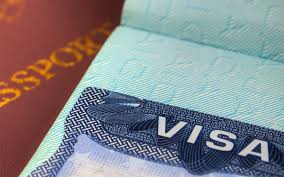Visa validity is a critical aspect of international travel that every traveler should clearly understand before entering a foreign country. Whether you’re traveling for tourism, business, education, or work, knowing the details of your visa validity can save you from legal troubles, fines, or even deportation.
What is Visa Validity?
Visa validity refers to the time period during which a visa is considered valid for entry into a specific country. This period is typically defined by two dates: the issue date and the expiry date. Within this timeframe, the visa holder is legally permitted to enter the destination country.
It is important not to confuse visa validity with the duration of stay. For example, your visa might be valid for six months, but only allow a 30-day stay each visit. Overstaying that duration, even by a day, can lead to penalties or a ban from re-entry.
Factors That Affect Visa Validity
Several elements determine how long your visa is valid:
- Type of Visa: Tourist, business, student, and work visas each have different validity lengths.
- Country Policy: Each country sets its own rules and immigration policy regarding visa duration.
- Passport Validity: Your passport must be valid for a certain period beyond your intended stay. Many countries require six months of passport validity.
- Travel History: A strong travel record can sometimes result in longer validity, especially for frequent travelers.
Common Misunderstandings About Visa Validity
One of the biggest mistakes travelers make is assuming that visa validity equals length of stay. Just because your visa is valid for five years does not mean you can stay in the country for five years continuously. Instead, you must look at the number of entries allowed and the permitted duration for each stay.
Another frequent error is entering a country right before the visa expiration date, thinking it allows a full stay. In reality, if your visa expires during your stay, you must exit before the expiration date unless you apply for a visa extension.
How to Extend Visa Validity
Extending or renewing a visa depends on the country’s immigration rules. Some countries allow you to apply for a visa extension while inside the country, while others require you to exit and reapply. Here’s a general process:
- Check Official Guidelines: Visit the immigration website of the country you’re staying in.
- Apply Before Expiry: Don’t wait until the last moment. Most governments advise applying at least two weeks before expiry.
- Submit Required Documents: This often includes your passport, current visa, financial proof, and a completed application form.
- Wait for Approval: In some cases, you’ll receive a temporary extension while your application is being processed.
Keep in mind, visa rules change frequently. Always refer to official government websites or consult with an immigration expert.
Travel Tips to Avoid Visa Issues
To make your travel smooth and hassle-free, follow these tips:
- Check Visa Validity Dates Twice before booking your tickets.
- Keep Digital & Physical Copies of your visa and other travel documents.
- Monitor Your Stay Duration using a calendar or travel app.
- Set Reminders for applying extensions or exits.
- Know the Local Laws, especially if you’re working or studying abroad.
Read More: Colombian Government Scholarship 2025 for Pakistani Students
Conclusion
Understanding visa validity is not just about knowing how long your visa lasts. It also involves being aware of how long you’re allowed to stay, the type of entries permitted, and your options for extension. Ignoring these details can result in fines, detention, or being blacklisted from future entries.
Read More: Easiest Schengen Visa Options for Pakistani Passport Holders









